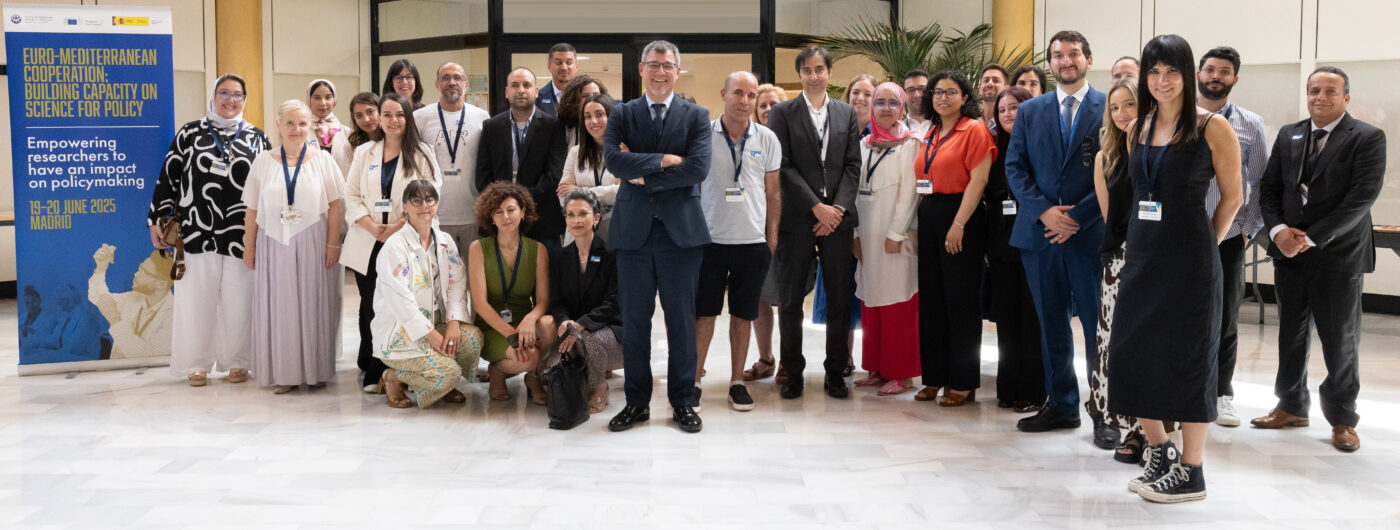
From knowledge to action: training researchers to influence Mediterranean policy
19–20 June 2025, Madrid. The Union for the Mediterranean (UfM), in collaboration with the European Commission’s Joint Research Centre (JRC) and the National Office for Science Advice of Spain (ONAC), organised a two-day training programme on “Science for Policy: Building Capacity in the Mediterranean.” Held at the Spanish Prime Minister’s Office – La Moncloa – the event brought together almost 30 early-career researchers and scientists from across the Euro-Mediterranean region to enhance their engagement in evidence-informed policymaking.
The training is part of a wider UfM effort to foster regional integration through strengthened science-policy cooperation, in line with the UfM Ministerial Declaration on Research and Innovation (2022). It builds on the JRC’s Competence Framework for Scientists and responds to the increasing demand for scientific advice in tackling Mediterranean-wide challenges, including climate change, water scarcity, energy transition, and health resilience.
Over two days, participants explored the dynamics of policy processes, practiced communicating scientific knowledge to non-specialist audiences, and engaged in interactive workshops that simulated real-world decision-making scenarios. Sessions were facilitated by policy experts from the JRC who have worked at the science-policy interface.
Opening the training, UfM Deputy Secretary General for Higher Education and Research, Joan Borrell, underlined the importance of science diplomacy in fostering trust and cooperation in the Mediterranean: “At the UfM, we believe that science is not a luxury, but a necessity for sustainable development and peace. This training is a concrete step in translating political will into action, by equipping a new generation of researchers with the skills needed to engage with policymaking across the Euro-Mediterranean region.”
Josep Lobera, Director of the Spanish National Office for Science Advice (ONAC), stated: “At ONAC, we have drawn inspiration for the design of our system from countries with long track records in science advice. Now, we want to continue sharing our experience and learning from the experiences of other countries. We know that exchanging information and experiences is key to improving our scientific advisory systems”.
In a dedicated session on Mediterranean cooperation, Giuseppe Provenzano , Project Manager for Research and Innovation at UfM, presented initiatives such as MedECC and the role of institutions like the European Forest Institute in advancing science-based policy solutions across the region.
This training reaffirms the UfM’s mission to foster a resilient and integrated Euro-Mediterranean area through capacity building, knowledge sharing, and enhanced dialogue between science and policy communities.


